National digital currencies soon sweeping across the globe?

01.10.2021
The interest in national digital currencies or central bank digital currencies (CBDCs) as they are formally called is huge. Research on their design and implementation, as well as their pros and cons, is well underway around the world. Let’s examine how different countries approach the matter.
More than 80 of the world’s central banks are actively researching CBDCs, with a majority in the research and development phase. If a country decides to issue a digital currency, it would be declared legal tender just like the fiat currencies1 that we currently use to pay. So, both the physical cash and the CBDC would circulate in parallel. There is mounting pressure on governments to adopt regulated digital currencies issued by their respective central banks as the market for unregulated digital currencies such as cryptocurrencies booms. (See fact box below explaining the difference between regulated and unregulated digital currencies)
China far ahead of other major economies in the CBDC race
Bahamas was the first country to formally issue a CBDC. It did so through authorized financial institutions. The Sand dollar as it is named was launched in October 2020. The currency union of the Eastern Caribbean followed suit with a pilot scheme on four islands in the region six months later. As for larger economies, China is at the forefront of setting up a digital yuan, e-CNY or digital RMB as it also is being referred to. Trial programs were launched in four cities in April 2020 with almost 21 million people taking part. Since then, more than 34 billion digital yuan (5 billion Swiss francs) have been issued. The plan is to let foreign visitors use the digital yuan without having to open a local bank account during the 2022 Winter Olympics in Beijing. A nationwide roll out date of the e-CNY has not been announced yet but is expected shortly after the completion of the Olympic Games.
Some countries prepare full launch, while the US & UK remain reluctant
In addition to China, another 13 countries are in pilot stages with their CBDC for retail purposes and prepare a possible full launch. Major economies such as Sweden and South Korea as well as the two financial centers Singapore and Hong Kong feature among these countries. As for Japan, its central bank kicked off a one-year digital yen trial in April. In Europe, the European Central Bank launched a two-year digital euro investigation phase in July, paving the way for a potential launch in 2025. The UK and the US are moving ahead more slowly. They are still considering whether there is a need to issue Britcoins or digital dollars, and debate the potential risks associated with CBDCs.
No digital Swiss franc planned
Switzerland is an exception. Its government in 2019 concluded that a universally accepted Swiss CBDC would bring no additional benefits and be too risky. The country’s central bank reaffirmed this position in June 2021, when it stated it has no plans to introduce a digital Swiss franc. Switzerland is nevertheless a leading
financial and technology center and has recently adopted an innovative crypo-legislation. A myriad of blockchain startups with more than 5,000 employees working in this fast-growing sector are based here. (See article on the new Swiss blockchain law) Swiss crypto banks have not been idle either. They are tapping on investors’ increasing interest in crypto assets. (See article on Swiss crypto banks)
Project Helvetia, a success story involving w-CBDC
The Swiss National Bank (SNB) last year teamed up with the Bank for International Settlements (BIS) and the Swiss financial infrastructure operator SIX to test the settlement of a wholesale CBDC (w-CBDC, restricted to banks and other financial institutions) in a near live set up. The experiment successfully demonstrated that w-CBDC can be issued, interconnected to existing payment systems and settled using blockchain. Given Project Helvetia’s success, the the scope of the experiment was widened in 2021. The SNB, BIS, Banque de France and private actors then also launched Project Jura, which investigates the effectiveness of using w-CBDCs for cross-border settlement. The SNB earlier this year underlined it has no plans to issue a Swiss w-CBDC at this stage.
1 government-issued money not backed by a commodity such as gold or silver or a financial instrument
Different types of digital currenciesThere are two types of digital currencies:
Central bank-issued digital currencies (CBDC), set to be adopted by numerous governments in the coming months or years.
Virtual currencies, assets represented in digital form and having monetary characteristics, have been in use for decades. They are typically controlled by private companies and then used and accepted in specific virtual communities. Virtual currencies can be fictional, such in online games, where they have no connection to the real world. But they can also be convertible into coupons, goods or services such as airlines’ frequent flyer schemes, Facebook Credits and Amazon Coins. Decentralized digital tokens, better known as cryptocurrencies, are a specific type of virtual currency. They are relatively new and have been around since 2009. New digital tokens are constantly being released, with more than 11,400 cryptocurrencies currently in circulation. Bitcoin and Ethereum have the greatest market capitalization. |
01.10.2021
In a report of September 2021, Switzerland’s wealth management banks defined 16 priorities for action as part of an industry initiative. These measures encompass the areas of transparency and disclosure, investment solutions and training as well as reducing greenhouse gas emissions. Read the CEOs commitments:
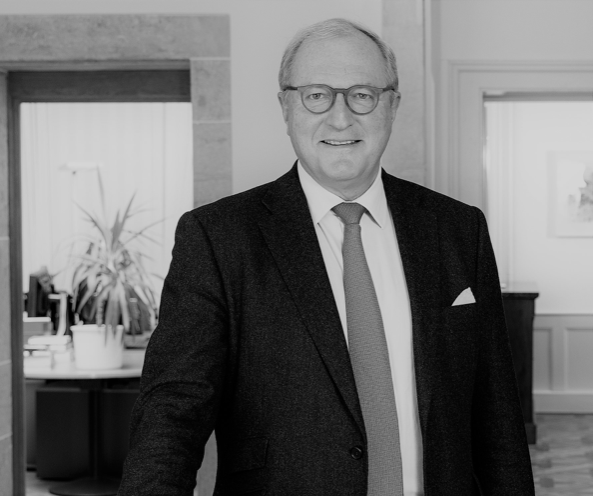
Jean Berthoud, Chairman, Banque Bonhôte & Cie SA
“We strive towards sustainable growth and value creation for future generations.”
This vision is reflected in our financial services offering. At Bonhôte, ESG principles are an integral part of our investment process and preference is given to sustainable investments in our asset allocation strategy. The bank also offers a discretionary mandate in responsible investment and an Impact Fund, devoted exclusively to this theme. The bank is about to get its “B Corp” certification. This internationally recognized label is used by companies that meet the highest standards in terms of ESG matters.

Vivien Jain CEO – Aquila AG
“Sustainable corporate governance and sustainable finance should become the norm.”
For a long time, sustainability was a label that companies could use to positively distinguish themselves, but those days are over. The awareness of the public, regulators, customers, but also employees has changed massively and wherever we as a financial institution and employer can promote sustainable thinking and action, we want to do so. Our measures therefore range from the review of suppliers and the appointment of an ESG officer to the design of sustainable model portfolios on the investment side.
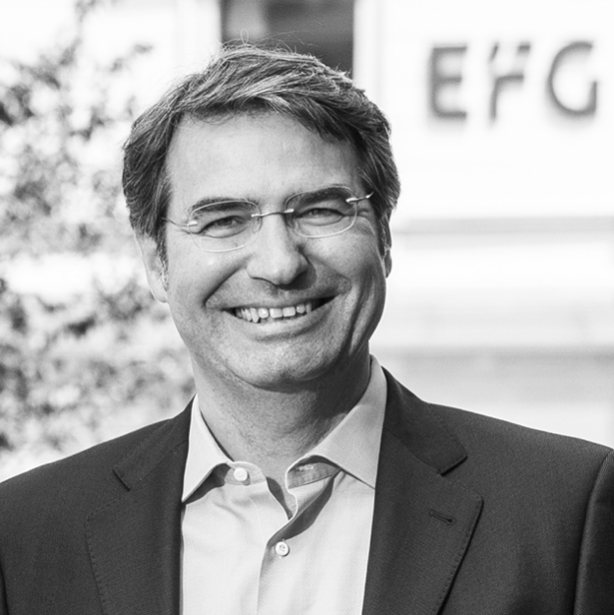
Giorgio Pradelli CEO – EFG International AG
“Investing in innovation will determine the prosperity of the next generation.”
I believe that sustainability is all about choosing the right path to balance economic, environmental and social interests. The needs and expectations of the next generation can be met by actively steering capital flows: the targeted allocation of capital is crucial to contribute to the global sustainable development goals, since this determines which technologies receive support and financing. I am convinced that the health and prosperity of future generations is dependent on our ability to redirect capital to technological developments that will drive the future value chain since the world can no longer afford to waste energy and other key resources.
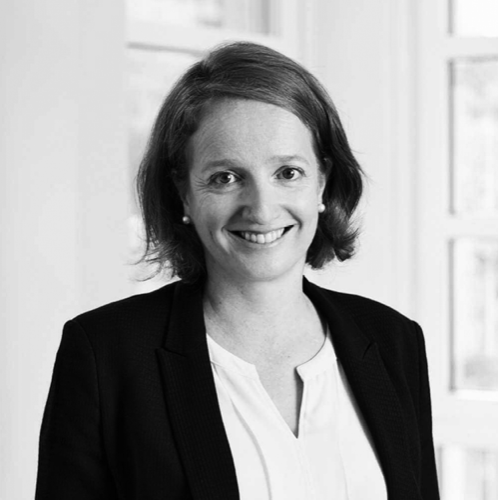
Barbara Vannotti-Holzrichter CEO – Scobag Privatbank AG
"Sustainability is very individual and does not stop with investments."
Sustainable finance is part of our DNA because of our history and owners. Whereas in the past the issue was mainly addressed through exclusion criteria, today we have our own ESG rating process for the companies in which we invest. Due to our direct investment approach, we can reflect individual preferences or priorities of our clients in the portfolio construction. The topic is multi-layered and is becoming more demanding and complex, not least due to regulatory requirements for corporate and investment reporting.
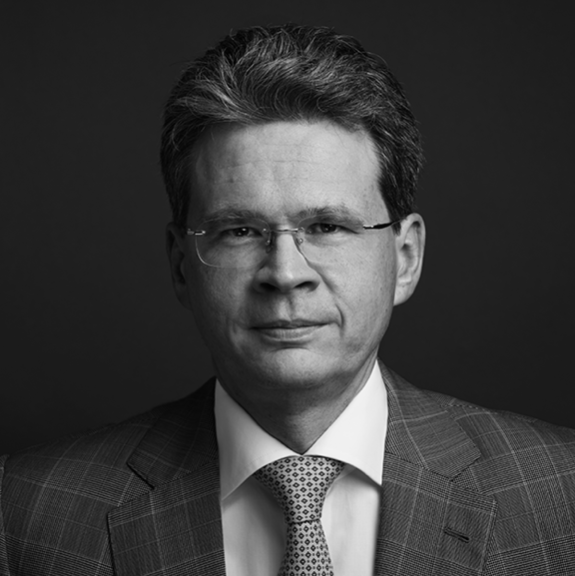
Zeno Staub, CEO Vontobel
“Take responsibility and act.”
Establishing the path towards a climate-neutral economy that preserves precious resources is the most important challenge of our time. This historic transformation process will create many opportunities for investors, but it also harbours risks. As a global investment company, we have been engaging in an active dialogue on this subject with both our private and institutional clients. For them, it is crucial that the sustainable investment solutions we offer can achieve financial success and provide them with the possibility of orienting their investment decisions around their specific goals and personal values.
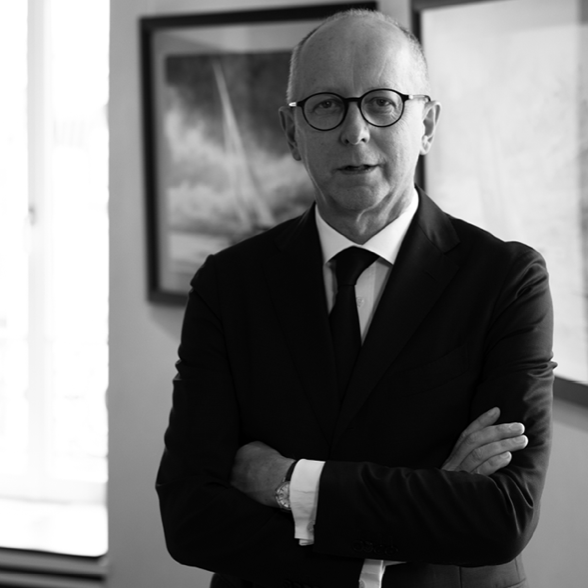
François Pauly CEO – Edmond de Rothschild (Suisse) SA
“Making wealth the starting point to build the world of tomorrow.”
Our ambition is to be a driving force of sustainable development. Our current reflections therefore include the service we provide to our clients and the investment solutions we offer them, the engagement of our employees, our impact on the environment as well as the place of human capital in our growth models. In terms of investment, we are convinced that extra-financial criteria are a key performance driver over the long-term. We also approach financial innovation as a source of progress for the real economy, remaining constantly focused on the future generations.
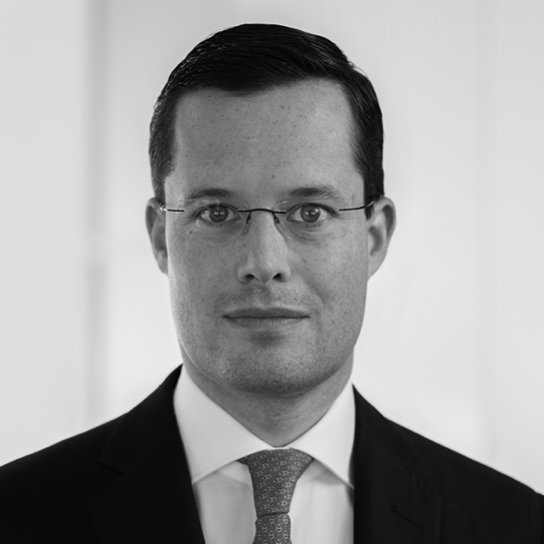
Stephan A. Zwahlen CEO – Maerki Baumann & Co. AG
“Cooperation with partners creates credibility in the area of sustainable investing.“
The topic of sustainability is omnipresent in the advisory work performed by Maerki Baumann every day. Moreover, this is true with respect to both private clients of all ages as well as institutional clients. We consider it our corporate responsibility to provide clients with transparency in terms of the impact of their investment on the environment and society. It is for this reason that we intend to further expand our cooperation with Globalance Bank – a pioneer in the area of sustainable investing. Working together with a specialist partner company creates credibility and allows us to focus on our core competencies in the area of long-term, independent asset management.
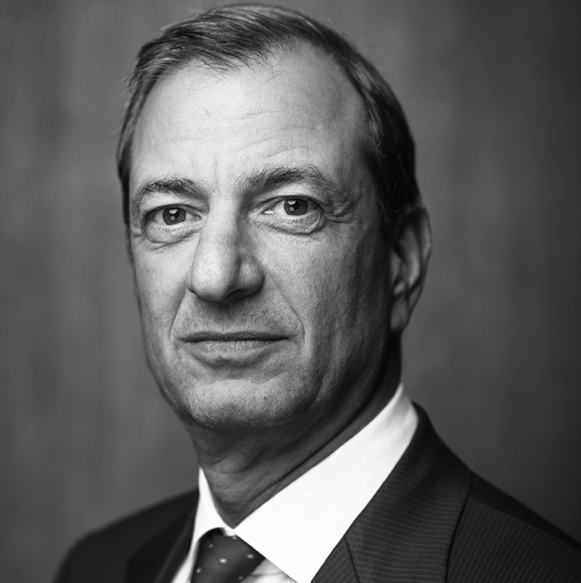
Guy de Picciotto CEO – Union Bancaire Privée, UBP SA
“Sustainable finance is our responsibility.“
“I consider it our responsibility as financial intermediaries to play an active role in helping solve the world’s major environmental and societal issues. Our main lever in this effort is channelling our clients’ investments towards solutions that tackle those challenges. We have therefore developed a wide range of responsible investment strategies, including a franchise of impact funds. In addition to being a signatory to the UN PRI since 2012, we support the Task Force on Climate-related Financial Disclosures (TCFD), as increased transparency combined with a harmonisation of sustainable financial products is more crucial than ever. “
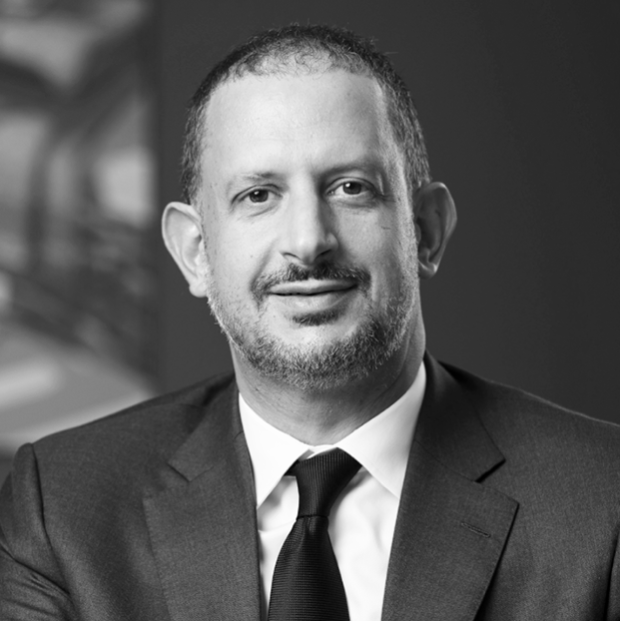
Philipp Rickenbacher CEO – Julius Bär Gruppe AG
“We want to empower our clients to make a positive impact.“
Julius Baer’s purpose it to create value beyond wealth. This supports us in our ambition to empower clients to make a positive and measurable impact on the world. We pursue a holistic sustainability approach that brings together responsible wealth management and our own corporate activities. In responsible wealth management, our thematic focus is on addressing the overuse of natural resources, and the underuse of human resources. Looking at these two challenges, we have developed an ecosystem of services, designed to accompany our clients on every step of their sustainability journey. To further implement and develop our sustainability strategy, we are currently creating a new training curriculum, enhancing our reporting capabilities, and further developing our climate strategy.
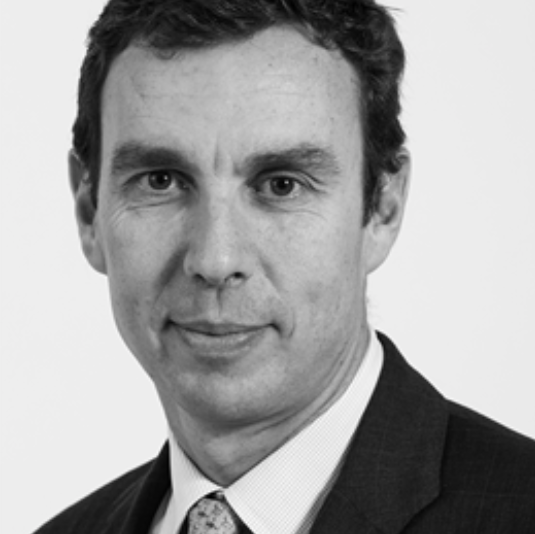
Vittorio Cornaro CEO – Cornèr Bank Ltd.
“Sustainable development as part of a family business tradition.“
As a family business now in the hands of its third generation, we at Cornèr Bank have shared a corporate culture of responsible value creation for almost 70 years. We have devoted particular attention to our relationship with our territory and our role in society, all while maintaining the future-oriented vision that has always defined us. We firmly believe that, in order to create long-term value for our clients, we will have to continue to rely on a responsible family business culture, which has always been our distinctive feature.
Read the full VAV report:
Switzerland’s wealth management banks are engaging against climate change | finance.swiss